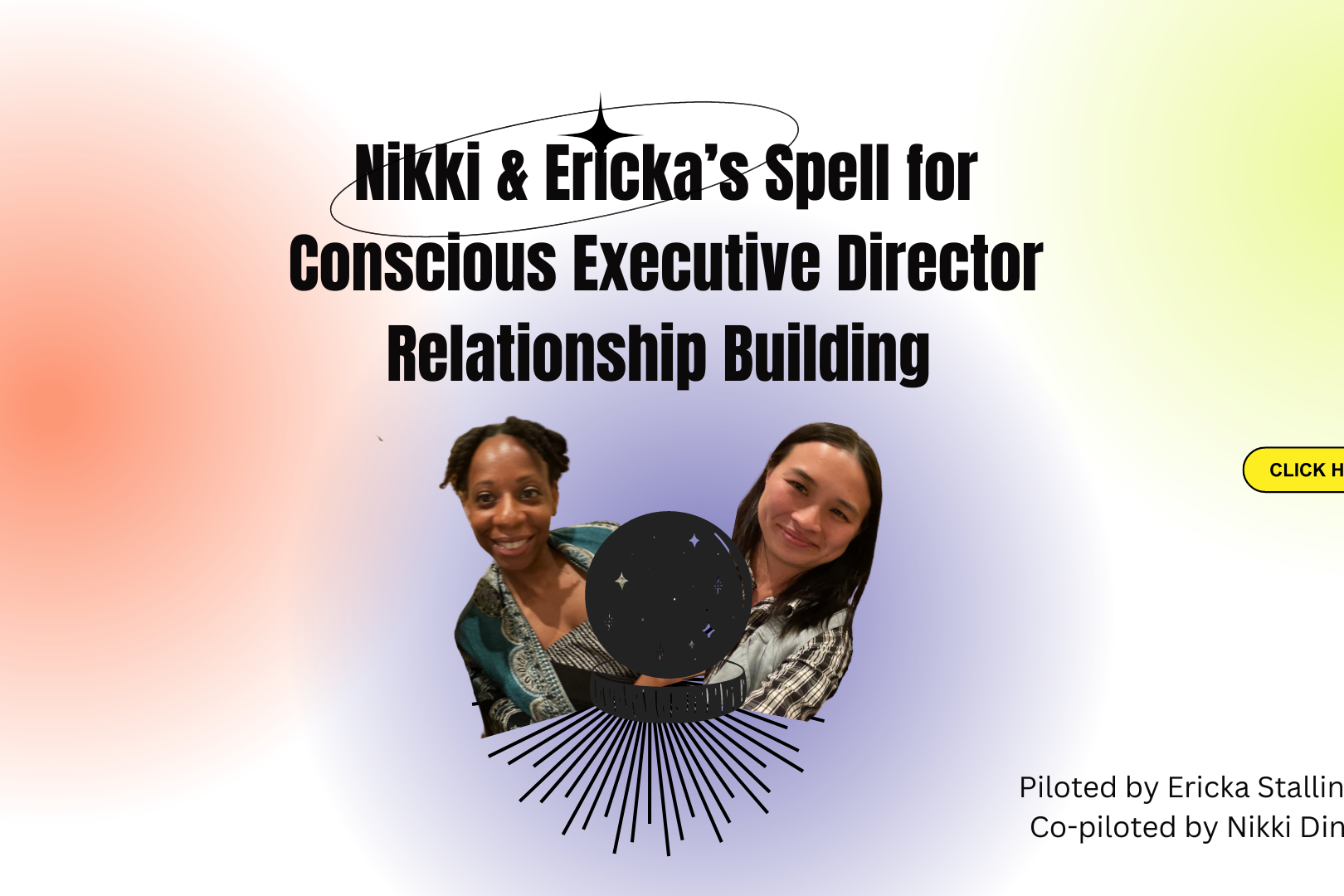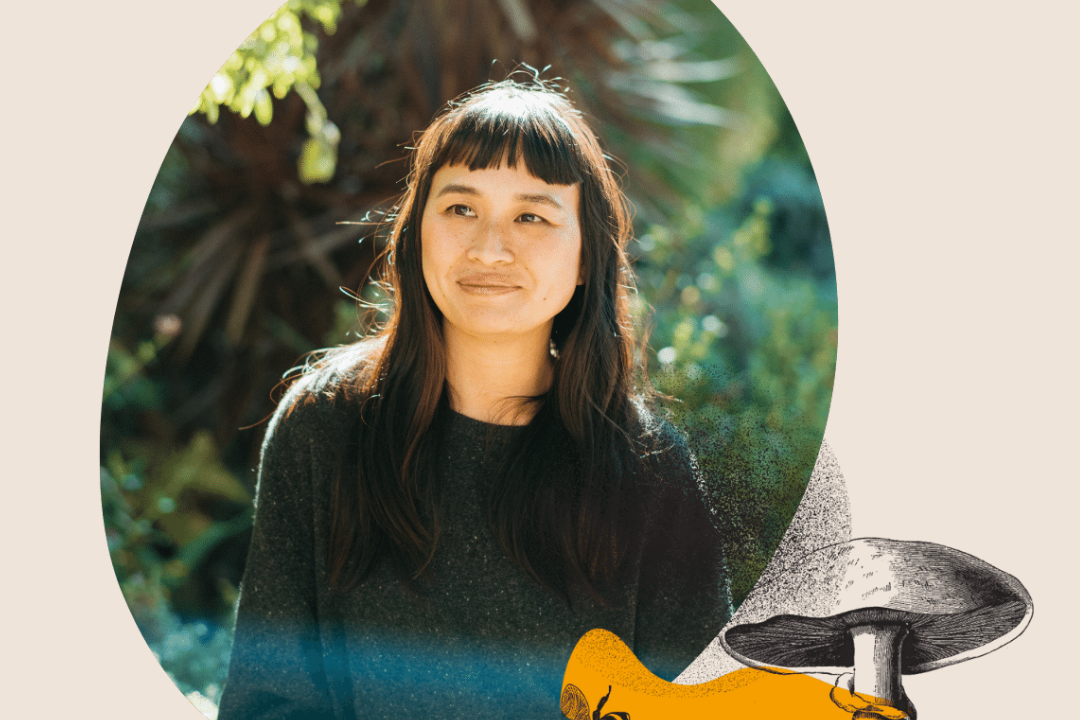At the Leadership Learning Community (LLC), we have gotten into the habit of describing our organization as an Oasis. This is because most of the LLC staff came to the organization seeking refuge, a work environment divorced from the toxic, draining, and/or disempowering conditions persisting at our previous jobs. LLC has long been a “heart on its sleeve” kind of place. I appreciate that I am affirmed to lead from my heart. At LLC, staff can explore how work can be more pleasurable and liberatory and then put our learnings into practice. We’ve each been learning about what liberation means to us as individuals and what it means to LLC’s work and organizational environment. While we remain in the space of deep learning and exploration, we’ve picked up some wisdom along the way through reading, deep individual and collective reflection practice, and shared learning with peers who are also on a liberatory learning journey. We have incorporated this exploration directly into the work by dedicating substantive time to assessing if our work feels liberatory at every stage.
Before exploring what liberation means to me, I hadn’t realized how much I saw ease and joy as something one experiences “eventually,” for example, after you retire or in your golden years. At LLC, I’ve had three distinct leadership arcs that have opened my mind to exploring what it means to just feel good now, not later after I’ve “earned it.” These arcs began with my first role at LLC when I shared the Co-ED role with Deborah Meehan, LLC’s founder and former ED, who is both white and older than me. I was then the sole ED when Deborah transitioned out of her role, and now I am again in a Co-ED relationship, this time with Nikki Dinh, a BIPOC woman who is younger than me. In each formation and from each partner, I’ve learned about myself, my organization, intergenerational leadership, and about shared leadership as a liberatory model. At LLC, the power holding doesn’t begin and end with Nikki and me. We have shifted to distributing power and authority throughout the team.
Learning from past experiences taught me to lean into the goodness of my partnership with Nikki and the team and to appreciate how these relationships make me a happier, more confident, and more effective leader. Consequently, the impact of the distributed approach to leadership has felt deeply personal. For example, the confidence I have in my team and the knowledge that, in Nikki, I have a ride-or-die partner who genuinely cares about my wellness convinced me that in Spring 2022, I could finally take the time I needed for a surgery I had delayed for several years. For the first several days of post-surgical healing, not only did I not check email, I didn’t even think about it. Previously in my pre-oasis career, I would have felt compelled, at minimum, to sneak a peek until chastised by a loved one. Later, as I got better, I only checked my email a few times and felt complete freedom to really luxuriate in the healing process. I could relax, understanding that I could take the time I needed and there would be no cost for this time away, no guilt, no shame, and most importantly, no expectation of gratitude. It was made clear that I deserved that time.
Before joining the Leadership Learning Community as Co-ED in 2019, the Executive Directors I met seemed tired, overburdened, and living on the edge of burnout. None of them had a work/life balance that I was willing to adopt for myself. Compared to environments that center production, LLC feels like a refuge. However, LLC isn’t just an oasis for the Co-EDs. LLC’s shared leadership model, coupled with a long-cultivated culture of care, created a very human-centered environment for all staff. To lead with a liberatory vision is to create and sustain the conditions for others to be in their fullness. I’ve come to identify the purpose of my work as a way to realize a liberatory vision, and rethinking our relationship to power and reimagining leadership is a key part of that. Together, Nikki and I are deepening the development of a culture of care both internally and externally. Knowing firsthand that many of our comrades in this work operate in very non-oasis-like conditions compels us to share our abundance. This is why LLC intentionally facilitates spaces in ways that invite play and restoration. We are happy to be a place of refuge for ourselves and our network because we know we are contributing to the work of liberation.
Actions that help LLC to reduce the stress, scarcity thinking, and urgency that can make our institutions feel like deserts
- Slowing Down: Trust me, it’s worth it to be spacious. You’ll find that what occupies your time is more valuable, and it’s easier to cull less valuable things. Slowing down has given LLC time to think, plan, and respond rather than react. Replacing meetings with collective workspaces is one practice that helps us reduce the amounts of meetings. These are distinct from strategy and planning meetings; focusing more meetings on completing actions has decreased the number of “this could’ve been an email” conversations.
- Asking for Help: You won’t get it right the first time or every time. We definitely didn’t. We needed support to figure out what was right for LLC. Effective coaching has been one way that I’ve asked for help and has been an essential component of my ability to thrive at LLC.
- Trust building: This model of shared leadership is extraordinarily relational. It’s extremely dependent on a strong base of trust, so investing heavily in trust and relationship building is critical. It is OK to fail, which makes it possible for people to take responsibility for errors rather than hide them in shame. Knowing that teammates will do their best and be transparent when they fall short deepens trust.
- Build a culture of care and generosity where staff are free to feel and to lead from the heart. Some ways to do so are to:
- Give permission to share feelings and treat feelings as valued data points, not something to be dismissed.
- Communicate that it is “OK” to fail.
- Establish a demonstrative culture with clear boundaries: At LLC, we generously share praise, send gifts, and offer effusive appreciation. When negative feedback is required, we actively practice mindfully delivering without omissions.
- Invest time and resources in having fun with each other- retreats, staff gatherings, gifts, etc.
- Practice giving and receiving grace and treating each other with kindness, remembering to value the humanity in your teammates, not just the following deliverable. Have fun and play together.
The following are other circumstances that inform LLC’s ability to reduce the stress, scarcity thinking, and urgency that can make our institutions feel like deserts:
- LLC is not a direct service provider, so we don’t have the urgency to respond to community members in need or crisis.
- LLC currently enjoys stable and secure financial health. So we can more easily be in choice about our work without it feeling like a risk.
- One condition we are currently assessing is the LLC’s level of homogeneity. We have a lot of diversity- age, race, class, family structure, geography. And there are some very significant commonalities. For example, our senior staff are all Cis-gendered married people in heterosexual relationships. Consequently, generative conflict is an area of exploration on the horizon for LLC. We want to lean into being in harmony even when we have dissonant ideas and experiences.
Related Posts
October 24, 2023
Boo! What’s scary about shared and distributed leadership?
February 15, 2022




